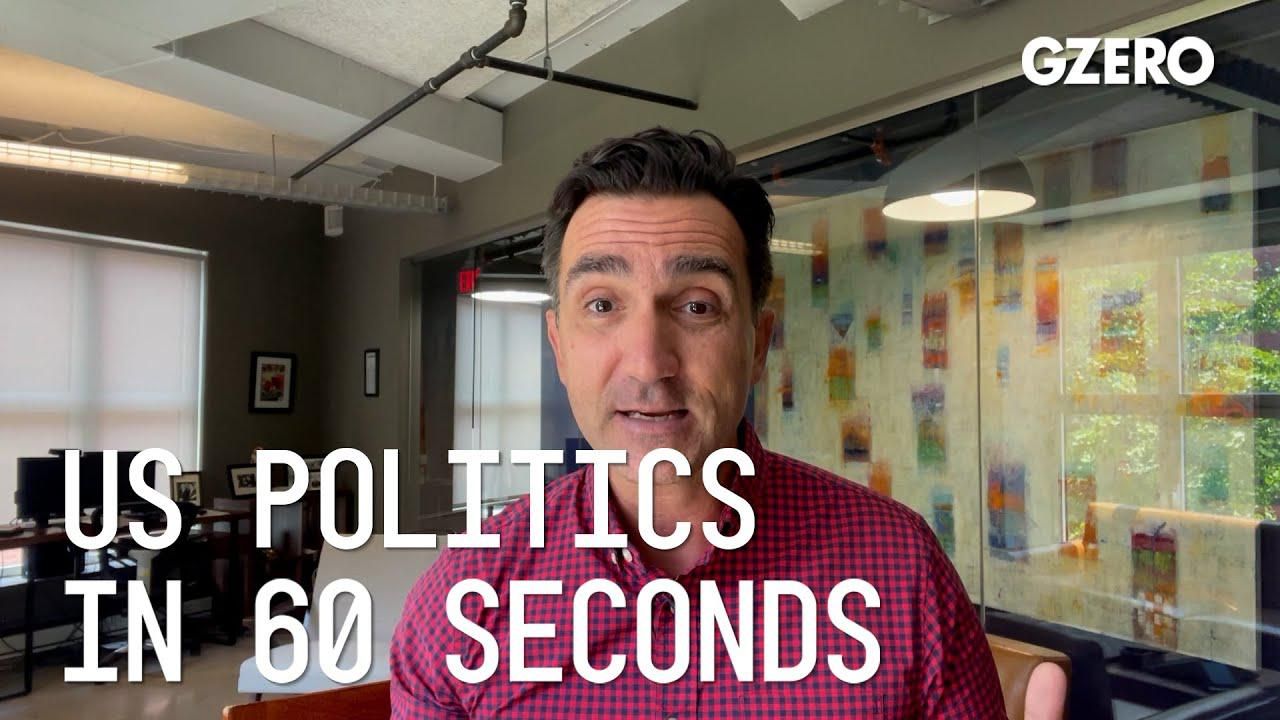US Politics In 60 Seconds
Climate emergency: limited Biden executive power

White House Climate Emergency Gives Biden New Powers To Reach Goals | US Politics :60 | GZERO Media

Jon Lieber, head of Eurasia Group's coverage of political and policy developments in Washington, DC, shares his analysis on US politics:
What is President Biden doing now that his legislative agenda is all but over?
Congress is getting ready to throw in the towel on 2022, racing to pass several pieces of legislation dealing with healthcare, drug prices and subsidies for the semiconductor industry before they go on their annual recess beginning in August. Some Democrats are holding out hope they can still pass a broader bill to finance green energy investments. But others are already writing the eulogy for the 117th Congress, recognizing how hard it is to legislate in a 50-50 Senate and a narrowly divided House and looking forward to Republicans taking control of at least one branch of government next year.
So what is President Biden going to do without Congress? He doesn't have great options. Democrats are looking to President Biden to drive action on abortion access, voting rights, and now climate change. All issues that Congress could not find big enough majorities to legislate on this year. This week, the Biden administration is attempting to claim progress on their very ambitious environmental agenda. Biden came into office with the goal of getting to a carbon pollution free power sector by 2035 and net zero emissions in the economy by 2050, and he had a plan to get there. An analysis from a team of Princeton University found that the Build Back Better plan passed by the House would've cut greenhouse gas emissions by 5.2 billion tons by 2030, well on the way towards Biden's goal of cutting carbon emissions in half by that point. But unfortunately the Senate couldn't pass that bill. And this week, the White House floated an idea supported by environmental groups, which is declaring a climate change emergency that would give him extraordinary powers to regulate fossil fuel emissions and regulate the carbon footprint of the federal government. But, these powers would likely still be incredibly limited.
The Supreme Court has indicated they would look skeptically on any expansive use of authorities under the Clean Air Act to regulate carbon emissions. And short of sweeping new regulations, Biden's powers are limited to things like redirecting federal funds towards research and development, establishing renewable energy purchase targets for the entire federal government, limiting the expansion of US oil and gas drilling and halting court mandated onshore lease sales. He's politically limited here as well. Anything that hurts domestic energy production is a political risk given high gas prices. The cumulative effect of these policies would fall far short of what would be needed to achieve his emission reductions target. Without congressional support there's only so much Biden can do, and these actions will fall far short of what Senator Sheldon Whitehouse called "executive Beast Mode", surely leaving climate activists disappointed and concerned as the incoming Republican majority in the House is not likely to do anything to reduce emissions.
15: The number of migrants who died after their boat accidentally collided with a Greek Coast Guard vessel in the Aegean Sea on Tuesday. Two dozen people were rescued.
Walmart is investing $350 billion in US manufacturing. Over two-thirds of the products Walmart buys are made, grown, or assembled in America, like healthy dried fruit from The Ugly Co. The sustainable fruit is sourced directly from fourth-generation farmers in Farmersville, California, and delivered to your neighborhood Walmart shelves. Discover how Walmart's investment is supporting communities and fueling jobs across the nation.
Democratic Alliance leader John Steenhuisen announced Wednesday that he will not run for a third term as leader of the liberal, pro-business party, after months of internal pressure over a host of controversies – including allegations, since cleared, that he used the party credit card for Uber Eats.